All
Developing Leaders at Strategic Institutions
Jason Walsh
Vice President, Christian Union Universities
Jason Walsh honorably served 10 years in the United States Marine Corps, 3 years in the 102nd Mounted Infantry Battalion with the Connecticut Army National Guard, and 4 years as a Firefighter/EMT for the City of Stamford Fire Department in Stamford, CT. At the Pentagon, Jason served as a Mission Planner, supporting the highest levels of U.S. leadership, including the resident, Vice President, Secretary of Defense, Joint Chiefs of Staff, and military generals across all branches. While deployed to Afghanistan, He was a Combat Aviation Operations Chief at Camp Dwyer, Afghanistan, a Forward Operating Base (FOB) to combat insurgent activity in the Helmand Valley, which was a hotbed of terrorist activity and the most dangerous province in Afghanistan at the time. Jason served in and out of combat zones with multiple government agencies, including the CIA, FBI, Secret Service, the U.S. Army’s 20th Special Forces Group, and the British SAS.
Throughout nearly 20 years of service in military and local agencies combined, Jason’s leadership has been at the forefront! Jason graduated from Marine Corps Recruit Training, Parris Island, SC (Boot Camp), as the Platoon Honor Graduate, #1 out of 96 recruits. He was promoted to Sergeant within his first 4 years of Marine Corps service. He was selected from the top 1% of the Marine Corps globally for recruiting duty. Jason was also a .50 Cal Machine Gunner, becoming proficient in all U.S. Army Infantry weapons systems, criminal profiling, and interrogation. He was selected in the top 10 out of 2000 applicants to be a Firefighter/EMT. He was later selected as an instructor at the Stamford Regional Fire Training School after unanimously being voted platoon leader in his own firefighter recruit class. His service is recognized with numerous military medals and personal awards, including the Afghanistan Campaign Medal, 2 Navy and Marine Corps Achievement Medals, 3 Marine Corps Good Conduct Medals, the National Defense Service Medal, and the Global War on Terrorism Service Medal.
Jason is the Vice President of Christian Union Universities, based at Yale University. He is also an associate pastor at The Rock Church in Wallingford, CT. Jason’s passion for Jesus and service is deeply personal. Overcoming homelessness and personal hardship, he attributes his transformation to the love and healing power of Jesus Christ. He is committed to sharing this message and believes that Jesus has a unique plan and message for each individual that can transform their life.
Jason holds a bachelor’s degree in Pastoral Leadership and Ministries from Nazarene Bible College in Colorado Springs, CO, with additional education in Theology and Urban Missions from Alliance Theological Seminary in Manhattan, NY.
Russ Louk
Ministry Operations Director, Christian Union Universities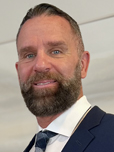 Born and raised in Farmingdale, New Jersey, Russ earned his MA in Christian Ministry Leadership, MDIV in Christian Leadership & Church Ministries, and DMIN in Expository Preaching and Teaching from Liberty University Baptist Theological Seminary. Shortly after graduating high school, Russ decided to serve his country and joined the United States Air Force.
Born and raised in Farmingdale, New Jersey, Russ earned his MA in Christian Ministry Leadership, MDIV in Christian Leadership & Church Ministries, and DMIN in Expository Preaching and Teaching from Liberty University Baptist Theological Seminary. Shortly after graduating high school, Russ decided to serve his country and joined the United States Air Force.Inspired by the Holy Spirit, Russ ended his 27-year career in the military to pursue the call to full-time ministry. He has worked in a variety of ministry roles such as Ministry Internship Director, Leadership Community Teaching Director, and Pastor of Leadership Development in Colorado Springs, Colorado. Russ joined Christian Union in the Spring of 2023..
Heading 2 (H2)
Lorem ipsum dolor sit amet, plaga blandit mara utrum mara comis ne, et lobortis exerci humo nisl praesent brevitas et. Aliquip qui verto pertineo eum jumentum sudo elit luptatum. Plaga consequat augue plaga in velit eu pagus enim euismod incassum esse. This is a link. Enim loquor autem vero te, in et saepius ventosus typicus. Minim, wisi consectetuer wisi adipiscing nimis dolor epulae defui, adsum defui venio in iaceo.- Nostrud distineo veniam suscipere nutus defu
- Feugiat in commoveo vero abico commodo
- Augue tincidunt, fatua nunc inhibeo utrum facilisis interdico usitas ex sed, ulciscor
Heading 3 (H3)
Ad occuro, ibidem fere, caecus usitas patria. Velit cui et acsi os, antehabeo facilisi modo hendrerit consequat suscipere delenit feugait vicis te. old stuff.- Nostrud distineo veniam suscipere nutus defu
- Feugiat in commoveo vero abico commodo
- Augue tincidunt, fatua nunc inhibeo utrum facilisis interdico usitas ex sed, ulciscor
Heading 4 (h4)
Lorem ipsum dolor sit amet, plaga blandit mara utrum mara comis ne, et lobortis exerci humo nisl praesent brevitas et. Aliquip qui verto pertineo eum jumentum sudo elit luptatum. Plaga consequat augue plaga in velit eu pagus enim euismod incassum esse. This is a link. Enim loquor autem vero te, in et saepius ventosus typicus. Minim, wisi consectetuer wisi adipiscing nimis dolor epulae defui, adsum defui venio in iaceo.Nostrud distineo veniam suscipere nutus defuFeugiat in commoveo vero abico commodoAugue tincidunt, fatua nunc inhibeo utrum facilisis interdico usitas ex sed, ulciscor
Heading 5 (H5)
Ad occuro, ibidem fere, caecus usitas patria. Velit cui et acsi os, antehabeo facilisi modo hendrerit consequat suscipere delenit feugait vicis te.Heading 6 (H6)
Ad occuro, ibidem fere, caecus usitas patria. Velit cui et acsi os, antehabeo facilisi modo hendrerit consequat suscipere delenit feugait vicis te.The Answer to the Lack of Faithful Communities Is to Create Our Own
BioLogos web editor Emily Ruppel recounts the story of one Harvard astronomy student’s brave decision to leave her studies to pursue ministry, which sparked an entire network of Christian scientists to come together in community—men and women who were accustomed to staying quiet about faith in their particular sphere of influence, the hard sciences.

Cherish Connelly '14 Reflects on Her Growth
 I'm majoring in psychology with a secondary degree in neurobiology. As a science concentrator, I'm often asked, "How can you believe in God?" I've been involved with Christian Union for four years and in that time I've developed the knowledge needed to answer that question tactfully, respectfully, and in a way that presents the Gospel.
I'm majoring in psychology with a secondary degree in neurobiology. As a science concentrator, I'm often asked, "How can you believe in God?" I've been involved with Christian Union for four years and in that time I've developed the knowledge needed to answer that question tactfully, respectfully, and in a way that presents the Gospel.Observing neurons in a microscope is an amazing sight; I love seeing how billions of tiny neurons control behavior, emotions, even senses. To me, it gives evidence of God. These tiny cells in our brain control everything the body does. I would argue, only God could design that efficiency.
"The highest and best use of power is when it is put in the service of those who have none..."
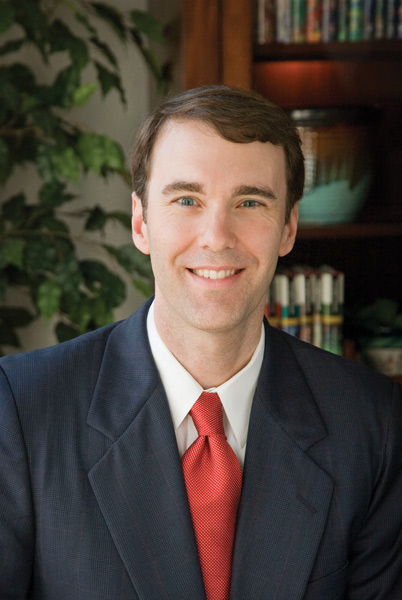 Christian Union: The Magazine recently interviewed D. Michael Lindsay (Princeton Ph.D. '06), the president of Gordon College and a Pulitzer Prize-nominated sociologist. Dr. Lindsay's latest book, View from the Top: An Inside Look at How People in Power See and Shape the World, is the culmination of an unprecedented Platinum Study of 550 top CEOs and senior officials.
Christian Union: The Magazine recently interviewed D. Michael Lindsay (Princeton Ph.D. '06), the president of Gordon College and a Pulitzer Prize-nominated sociologist. Dr. Lindsay's latest book, View from the Top: An Inside Look at How People in Power See and Shape the World, is the culmination of an unprecedented Platinum Study of 550 top CEOs and senior officials.CU: Your first book was entitled Faith in the Halls of Power: How Evangelicals Joined the American Elite. Even though View from the Top is about leaders from various backgrounds, did faith and achievement again intersect in any way?
ML: I found Christ's example of sacrificial leadership modeled again and again in the lives of what I call "platinum leaders," those who have risen to the top of their institutions and are able to catalyze change. The relational dimension of leadership requires those who seek influence to think carefully about the ways their personal values and faith commitments intersect with their responsibilities. View from the Top was written for a general audience, but I think faith is so essential to good leadership that I added a conclusion to the text that seeks to explain how the two relate. Luke 12:48 says, "Unto whom much is given, much is required." The key idea of the book is that responsibility accompanies leadership. We must use the blessings we are given to bless others. The highest and best use of power is when it is put in the service of those who have none.
CU: As a leadership development ministry, Christian Union has a vested interest in mentoring. In View from the Top, you indicate the important role mentoring has played with some top executives. Could you elaborate?
ML: Mentorship is key for the development of young leaders. It is essential for providing access to well-connected networks and also for passing down wisdom and experience. In the stories of many leaders, I found a series of mentoring chains. For example, Harvard Kennedy School professor Dick Neustadt invested in the life and career of young NAACP lawyer Vernon Jordan, in particular by inviting him to join the Bilderberg Conference. Years later, Jordan invited his friend and protégé Bill Clinton to the conference, introducing him to other global leaders. Indeed, we all benefit from mentors who take an interest in our lives and help us become all that God wants us to be.
CU: In View from the Top, one of your chapters is entitled "Lead With Your Life: Because It's Much More than a Job." How do we lead with our lives? Who is someone that embodies this trait?
ML: As I quickly learned after becoming the president of Gordon, institutional leadership is much, much more than a 9-5 job. The CEO or the president is so closely associated with her organization that their very life must reflect the institution's values. Every leader who aspires to make a significant difference in her firm, industry, or in society must inspire her constituents, not only with her words, but with her actions, habits, and traits. The quickest way to bring down a political opponent is to uncover marital infidelity; voters surmise that a politician unfaithful to his wife will be unfaithful to his political promises. Similarly, when CEOs institute layoffs and pay cuts, while simultaneously raking in millions, employees, shareholders, and the general public resent the hypocrisy. One of my favorite examples (of leading with your life) is Colleen Barrett, the former president of Southwest Airlines, who really embodied the friendly and helpful persona of the airline.
CU: Talk about the role that large institutions play in shaping culture and why you encourage your students to embrace, not avoid large institutions when they look for jobs.
ML: The conceit of the Internet age is that now anyone with a wireless connection has the capability to influence millions—through a tweet, viral video, or Tumblr feed. Though widespread, these ephemeral forms of communication are not nearly as weighty as major institutions such as Harvard University, Procter & Gamble, the Wall Street Journal, or the Supreme Court. Events such as the Arab Spring of 2011 demonstrate that social media can precipitate revolutions, but they cannot maintain and organize the revolutionary impulse for long-term change. For that, society relies on institutions. By becoming part of these influential entities, students can begin to leverage their God-given talents for the widest impact.
Christian Union Alumna and Husband Now Sponsor Current Students' Bible Course
By Sarah Camp, Contributing Editor
Lindsay Grinols Simmons (Princeton '04) was one of just a handful of students involved with the budding Christian Union ministry when it first launched at Princeton over a decade ago. In fact, she was a member of the ministry's first women's Bible course. You might say that gives her a unique vantage point on the ministry's growth at Princeton over the years, where it has surged from three students in 2002 to more than 400 students in 2013-14."The year-over-year increase in Princeton students' engagement with Christian Union is astonishing," she says. "It shows Princeton students are hungry for the truth."
Jonathan Edwards' Devotion to Bible Study
By Catherine Elvy, Staff Writer
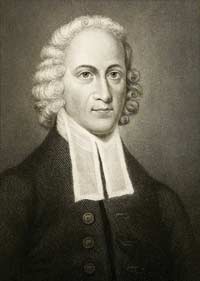 An article in the latest issue of Jonathan Edwards Studies paused to shed light on the everyday habits and intense biblical study of the famed revivalist preacher and early Yale University alumnus.Jonathan Edwards stands as one of the top figures in the spiritual history of the United States, and his life serves as an inspiration to believers across the globe.
An article in the latest issue of Jonathan Edwards Studies paused to shed light on the everyday habits and intense biblical study of the famed revivalist preacher and early Yale University alumnus.Jonathan Edwards stands as one of the top figures in the spiritual history of the United States, and his life serves as an inspiration to believers across the globe.In the piece, Douglas Sweeney, a key Edwards' scholar with ties to Yale, reflected on the scriptural fervor behind the theologian's scholarship. Sweeney serves on the editorial board for the online journal, part of the Jonathan Edwards Center at Yale.
"Edwards devoted most of his waking life to studying the Bible, its extra-biblical contexts, its theological meanings, and its importance for everyday religion," wrote Sweeney, the director of the Jonathan Edwards Center at Trinity Evangelical Divinity School in Illinois.
"The highest and best use of power is when it is put in the service of those who have none..."
 Christian Union: The Magazine recently interviewed D. Michael Lindsay (Princeton Ph.D. '06), the president of Gordon College and a Pulitzer Prize-nominated sociologist. Dr. Lindsay's latest book, View from the Top: An Inside Look at How People in Power See and Shape the World, is the culmination of an unprecedented Platinum Study of 550 top CEOs and senior officials.
Christian Union: The Magazine recently interviewed D. Michael Lindsay (Princeton Ph.D. '06), the president of Gordon College and a Pulitzer Prize-nominated sociologist. Dr. Lindsay's latest book, View from the Top: An Inside Look at How People in Power See and Shape the World, is the culmination of an unprecedented Platinum Study of 550 top CEOs and senior officials.CU: Your first book was entitled Faith in the Halls of Power: How Evangelicals Joined the American Elite. Even though View from the Top is about leaders from various backgrounds, did faith and achievement again intersect in any way?
ML: I found Christ's example of sacrificial leadership modeled again and again in the lives of what I call "platinum leaders," those who have risen to the top of their institutions and are able to catalyze change. The relational dimension of leadership requires those who seek influence to think carefully about the ways their personal values and faith commitments intersect with their responsibilities. View from the Top was written for a general audience, but I think faith is so essential to good leadership that I added a conclusion to the text that seeks to explain how the two relate. Luke 12:48 says, "Unto whom much is given, much is required." The key idea of the book is that responsibility accompanies leadership. We must use the blessings we are given to bless others. The highest and best use of power is when it is put in the service of those who have none.
CU: As a leadership development ministry, Christian Union has a vested interest in mentoring. In View from the Top, you indicate the important role mentoring has played with some top executives. Could you elaborate?
ML: Mentorship is key for the development of young leaders. It is essential for providing access to well-connected networks and also for passing down wisdom and experience. In the stories of many leaders, I found a series of mentoring chains. For example, Harvard Kennedy School professor Dick Neustadt invested in the life and career of young NAACP lawyer Vernon Jordan, in particular by inviting him to join the Bilderberg Conference. Years later, Jordan invited his friend and protégé Bill Clinton to the conference, introducing him to other global leaders. Indeed, we all benefit from mentors who take an interest in our lives and help us become all that God wants us to be.
CU: In View from the Top, one of your chapters is entitled "Lead With Your Life: Because It's Much More than a Job." How do we lead with our lives? Who is someone that embodies this trait?
ML: As I quickly learned after becoming the president of Gordon, institutional leadership is much, much more than a 9-5 job. The CEO or the president is so closely associated with her organization that their very life must reflect the institution's values. Every leader who aspires to make a significant difference in her firm, industry, or in society must inspire her constituents, not only with her words, but with her actions, habits, and traits. The quickest way to bring down a political opponent is to uncover marital infidelity; voters surmise that a politician unfaithful to his wife will be unfaithful to his political promises. Similarly, when CEOs institute layoffs and pay cuts, while simultaneously raking in millions, employees, shareholders, and the general public resent the hypocrisy. One of my favorite examples (of leading with your life) is Colleen Barrett, the former president of Southwest Airlines, who really embodied the friendly and helpful persona of the airline.
CU: Talk about the role that large institutions play in shaping culture and why you encourage your students to embrace, not avoid large institutions when they look for jobs.
ML: The conceit of the Internet age is that now anyone with a wireless connection has the capability to influence millions—through a tweet, viral video, or Tumblr feed. Though widespread, these ephemeral forms of communication are not nearly as weighty as major institutions such as Harvard University, Procter & Gamble, the Wall Street Journal, or the Supreme Court. Events such as the Arab Spring of 2011 demonstrate that social media can precipitate revolutions, but they cannot maintain and organize the revolutionary impulse for long-term change. For that, society relies on institutions. By becoming part of these influential entities, students can begin to leverage their God-given talents for the widest impact.
"Christians need to be much bolder..."
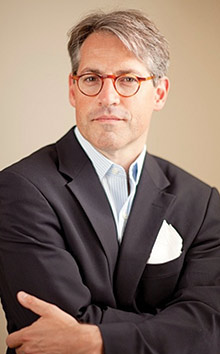 Christian Union: The Magazine interviewed author and renowned speaker Eric Metaxas, Yale '84, on the subject of culture change for its Spring 2014 issue.
Christian Union: The Magazine interviewed author and renowned speaker Eric Metaxas, Yale '84, on the subject of culture change for its Spring 2014 issue.CU: Regarding culture change and your recent books, did you find a common denominator between William Wilberforce, Dietrich Bonhoeffer, or any of the other subjects in Seven Men: And the Secret of Their Greatness?
EM: These were all men who were "in the world, but not of it," who all seemed to understand how to bring their faith into the "real world," as it were, into all spheres, not just the religious sphere.
Columbia Lecture Attracts Christians, Non-Christians
By Luke Foster, Columbia '14
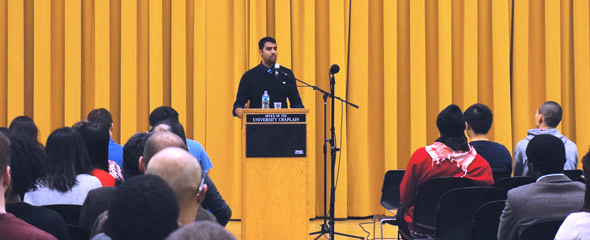
Thursday nights at Columbia University tend to be quiet. Few students have classes on Fridays, so almost everyone prepares for the weekend and tries to recover from the hectic week. The Christian ministries on campus use Thursday evenings as times to worship and reflect.
But Thursday, February 20 was a little different.
For a week, posters and Facebook posts had been proclaiming an exciting event for that evening. Compass Christian Koinonia and Apologetics Café co-hosted a lecture with Dr. Nabeel Qureshi, a Ravi Zacharias International Ministries speaker. Several campus organizations helped publicize the event. Approximately 150 people of all faiths and no faith crowded into a small auditorium to engage with the ideas of Dr. Qureshi.
Dr. Qureshi, who titled his talk after his new book, Seeking Allah, Finding Jesus, challenged students to pursue truth above beauty, and to be willing to submit to the most compelling view of the world, no matter the cost.






